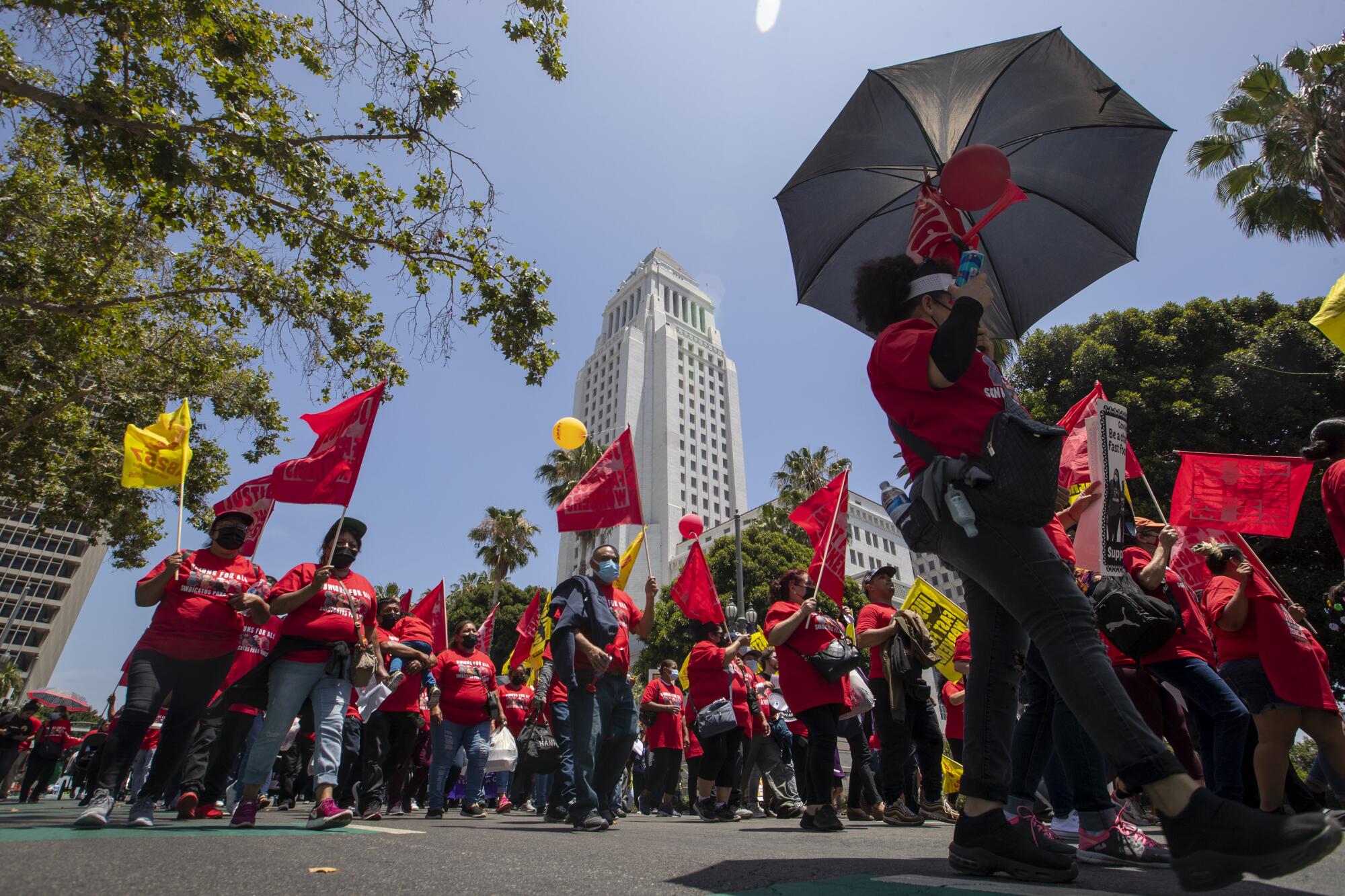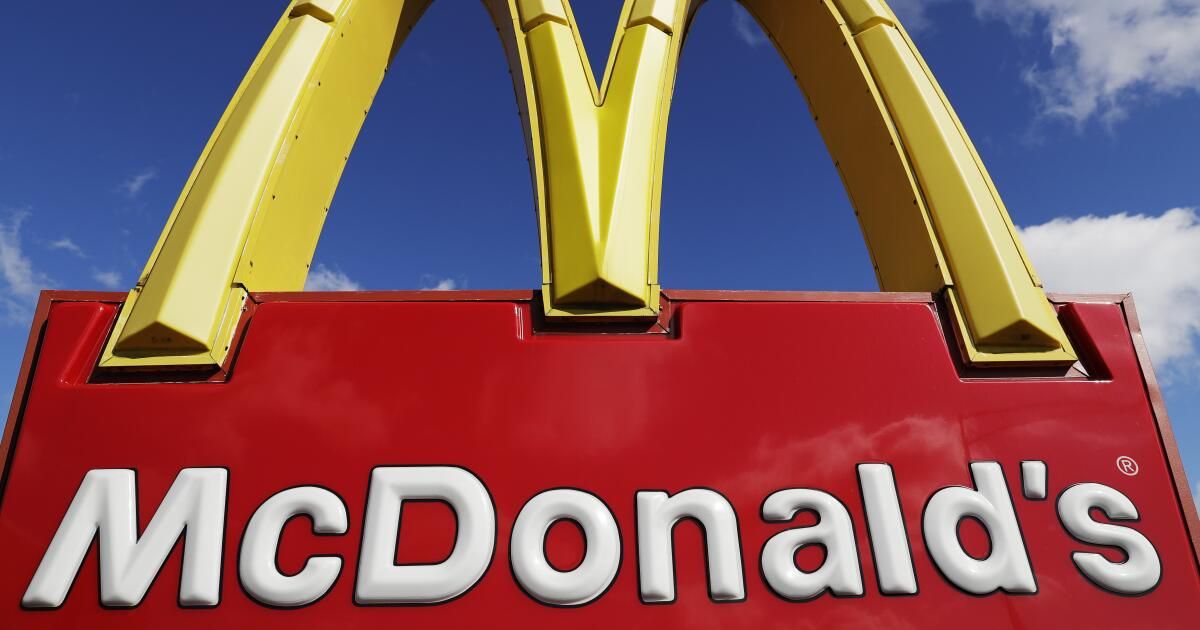Millions of American families are heading out on the road for summer vacation, and ordering food on the go tends to be normal. It couldn't come at a better time. Fast food joints are in the midst of a food budget war, offering promotions to entice customers to return to their restaurants despite inflation concerns and a minimum wage hike in California and other states.
Starting June 25, McDonald's will offer a one-month deal on a combo meal, either a McChicken, a McDouble or four-piece chicken nuggets, fries and a small drink, for $5.
After McDonald's announcement last month, other fast food restaurants followed suit. Wendy's announced its limited-time $3 breakfast combo and Burger King announced it planned to bring back its $5 Your Way Meal.
Plus, fast food mobile apps continue to offer huge discounts.
Application relief
Earlier this week, a Big Mac with medium fries and medium drink cost $11.79 before tax at a McDonald's in Santa Ana. That same meal ordered through a mobile app for pickup at the same location cost $6.50 before taxes, a savings of $5.29.
But prices and offers usually vary depending on the user.
Diners have started complaining on Reddit about McDonald's mobile app. Some say the offers decrease with use. Others say their friends or partners got a better deal on the app than they did. Some mentioned that they could find better deals by simply walking in and ordering at their local McDonald's.
The slew of promotional offers came after diners criticized fast food companies on social media earlier this year for price gouging.
In response, Joe Erlinger, president of McDonald's USA, said in an open letter last month that the average price of McDonald's menu items has increased about 40% since 2019.
The McDonald's restaurant logo and golden arch light up in Chicago. McDonald's plans to introduce a $5 meal deal in the US in June 2024 to counter slowing sales and customer frustration over high prices.
(Jeff Roberson/Associated Press)
“Recently, we have seen viral social posts and poorly sourced reports that McDonald's has increased prices significantly beyond inflationary rates. “This is inaccurate,” Erlinger wrote.
“The average price of a Big Mac in the United States was $4.39 in 2019,” he said. “Despite a global pandemic and historic increases in supply chain costs, wages and other inflationary pressures in the years since, the average cost is now $5.29. That is an increase of 21% (not 100%),” as unsubstantiated claims claim on social media.
Quick-service restaurants said the increases were in response to rising inflation and labor costs, in part due to minimum wage increases not only in California but across the country.
It's true that quick-service restaurants like McDonalds have had to deal with rising costs, but they're in no way hurting, said Shubhranshu Singh, an associate professor at Johns Hopkins University who specializes in quick-service marketing.
“They are not fighting,” Singh said. “Inflation is rising. Salaries are going up. But McDonald's profits are also increasing.”
McDonald's global comparable sales grew almost 2% in the first quarter of the year, according to the latest statistics provided by the company. The fast food giant described this profit increase as “benefiting from average check growth driven by strategic increases in menu prices.”
Price-weary diners have taken notice and become fed up with price increases, choosing to eat less fast food and protesting on social media that their budget meals are no longer affordable, Singh said.
Several diners took aim at McDonald's, complaining on TikTok that the company charges more for food that is supposed to be affordable.
“This is equivalent to $3 worth of food,” said a customer holding a potato in his hand. “Something doesn't seem right here.”
“McDonald's has become too arrogant,” said another customer. “You're not supposed to be expensive.”
One diner called it “absurd” to have paid $4.59 for a medium portion of fries.
And then there was an uproar over a McDonald's in Connecticut charging $18 for a Big Mac combo meal. The photo sparked a national debate about skyrocketing fast food prices.
Making decisions
Most McDonald's in the United States are independent franchises, so prices vary depending on where you visit.
Rising fast food prices ultimately led to slower-than-expected sales at several quick-service restaurants, including McDonald's, Starbucks and Pizza Hut.
“Consumers are always making decisions,” said Bank of America restaurant analyst Sara Senatore. “When the value proposition starts to diminish, consumers will make other decisions.”
Until recently, consumers were willing to pay more for quick-service food. When fast food prices began to skyrocket in 2022, consumers simply accepted because prices everywhere had increased due to inflation, Senatore said.
But now inflation has decreased. Grocery prices have fallen and budget-conscious consumers may no longer see fast food as a clear, affordable option, he said.
Enter the value of the meals.

Fast food workers demonstrate in favor of a proposed minimum wage increase in front of Los Angeles City Hall in 2022. The approved increase went into effect on April 1 and was considered a victory for unions.
(Brian van der Brug/Los Angeles Times)
Cheap meals are not new. In the 1980s, McDonald's, Wendy's and Burger King participated in a series of advertising campaigns known as Burger Wars, competing for customers in the then-burgeoning fast food market.
“The hope is that the consumer will go there and maybe buy something additional to the cheap food and then want to come back even when there is no deal,” Singh said.
But the promotions, analysts warned, cannot last forever.
“It's not sustainable,” Singh said. “I don't expect any of these agreements to stick.”












